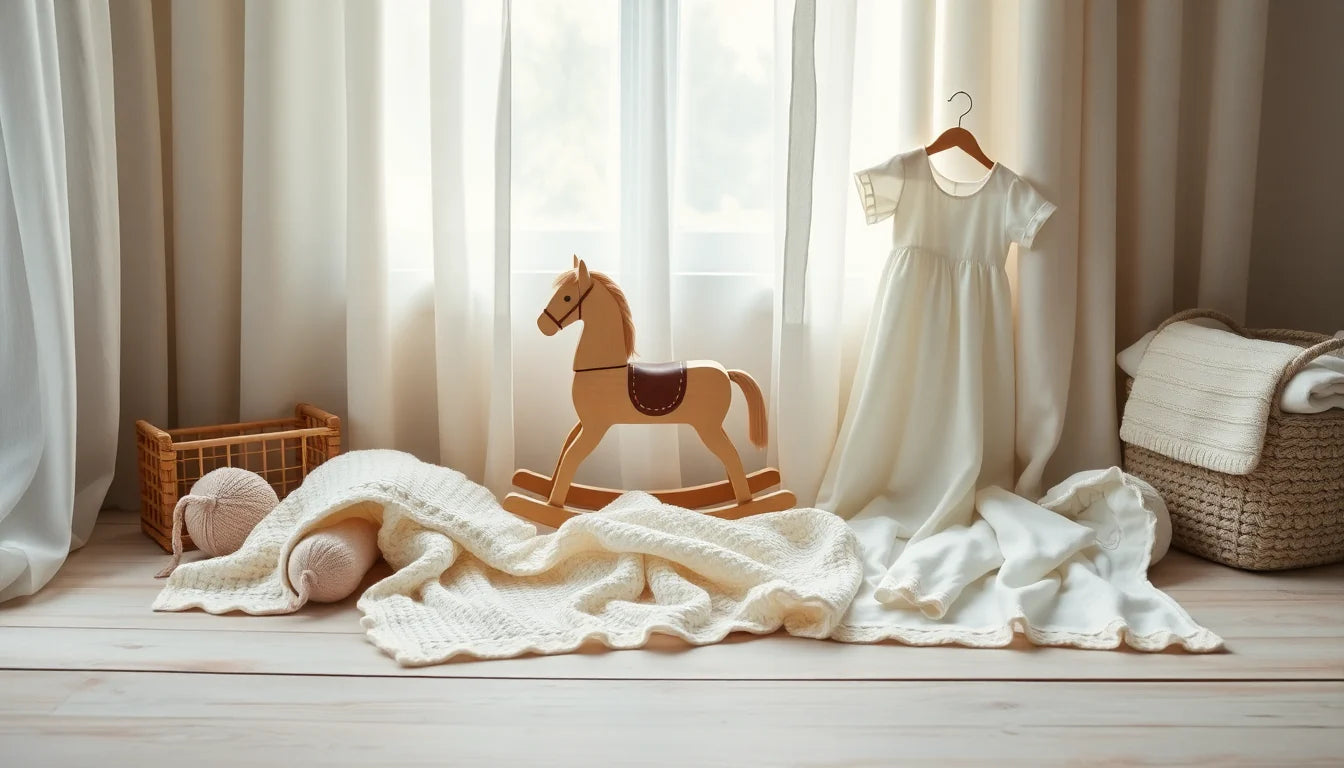As a new parent, one of the essential items you'll need to stock up on is baby bibs. These versatile accessories not only keep your little one's clothes clean during messy feedings but also add a touch of style and personality to their outfits. However, with so many bib materials and designs available, it can be overwhelming to decide which ones are best for your baby.
In this blog post, we'll explore the pros and cons of the three most popular bib materials - cotton, silicone, and waterproof - to help you make an informed decision and find the perfect bibs for your little one.
Cotton Bibs
Cotton bibs are a classic choice for many parents, and for good reason. These soft, absorbent fabrics are gentle on delicate skin and can be easily washed and reused. Cotton bibs come in a wide variety of colors, patterns, and designs, making them a versatile option that can complement any outfit.
Pros of Cotton Bibs:
- Soft and comfortable for your baby's skin
- Highly absorbent, great for catching drool and spills
- Easy to clean and machine-washable
- Breathable material that won't cause skin irritation
- Affordable and accessible
Cons of Cotton Bibs:
- May not be as durable as other materials, especially with frequent use
- Can become stained or discolored over time
- May not provide as much protection against larger spills or messes
Silicone Bibs
Silicone bibs have become increasingly popular in recent years, thanks to their unique features and benefits. Made from a flexible, food-grade silicone material, these bibs are designed to be both practical and stylish.
Pros of Silicone Bibs:
- Waterproof and easy to wipe clean
- Durable and long-lasting, even with frequent use
- Flexible and comfortable for your baby to wear
- Trap food and liquids effectively, reducing mess
- Often come with a built-in crumb catcher or pocket
Cons of Silicone Bibs:
- Can be more expensive than cotton bibs
- May not be as absorbent as cotton, especially for larger spills
- Some babies may find the material less comfortable or irritating to their skin
Waterproof Bibs
Waterproof bibs are a great option for parents who want maximum protection against messy feedings and drooling. These bibs are typically made from a combination of materials, such as polyester, PVC, or laminated fabrics, that create a waterproof barrier.
Pros of Waterproof Bibs:
- Provide excellent protection against spills, drool, and food messes
- Easy to wipe clean and maintain
- Durable and long-lasting
- Often come with a built-in pocket or crumb catcher
- Can be used for both feeding and playtime
Cons of Waterproof Bibs:
- May not be as breathable or comfortable as cotton bibs
- Can be more expensive than other bib options
- Some materials may not be as soft or gentle on your baby's skin
Comparative Analysis
When it comes to choosing the right bib material for your baby, there are several factors to consider, including comfort, practicality, and cost-effectiveness.
Comfort: Cotton bibs are generally the most comfortable option, as they are soft and breathable. Silicone and waterproof bibs may be less comfortable, especially for sensitive skin.
Practicality: Waterproof bibs offer the highest level of protection against messes, making them a practical choice for messy eaters. Silicone bibs are also easy to clean and maintain, while cotton bibs may require more frequent washing.
Cost-effectiveness: Cotton bibs are typically the most affordable option, while silicone and waterproof bibs can be more expensive. However, the durability of these materials may make them a better long-term investment.
Choosing the Right Bib for Your Baby
When selecting the right bibs for your baby, consider their age, feeding style, and your personal preferences. Younger babies may benefit from the softness and absorbency of cotton bibs, while older babies who are more active eaters may do better with waterproof or silicone options.
Additionally, think about your baby's skin sensitivity and any potential allergies or irritations. If your little one has sensitive skin, you may want to opt for a hypoallergenic, gentle material like cotton.
Ultimately, the best bibs for your baby are the ones that provide the right balance of comfort, protection, and practicality for your family's needs.
Conclusion
Choosing the right baby bibs can make a big difference in your daily feeding routine, helping to keep your little one's clothes clean and your mind at ease. By considering the pros and cons of cotton, silicone, and waterproof bibs, you can find the perfect options to suit your baby's needs and your personal preferences.
At TenderBeans, we are committed to providing high-quality, safe, and comfortable baby essentials that make parenting a little easier. Our selection of bibs and burp cloths are crafted with care and attention to detail, ensuring that your little one is always well-protected and comfortable. Browse our collection today and find the perfect bibs for your family.
